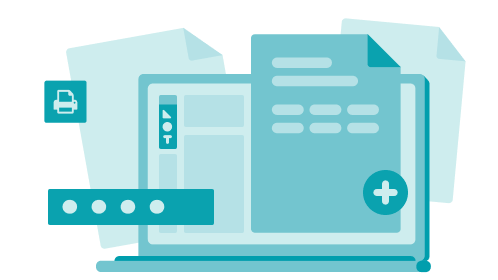In 2019, 25% of full-time employees said they were earning extra money on the side, an increase from 16% just two years prior. If you want to get on that train, here are a few tips to start.
Just start!
There’s no specific administrative task for you to do if you just want to do a little extra work. Of course you could incorporate or register a DBA name with your state and open a business bank account. But you don’t have to in order to start a side gig. You can just find yourself some gigs and start working – the only thing you’re required to do is report the income (more on that below). Also note that for some specific professions (mostly in construction, healthcare and education) you’re required to register with the state and get relevant insurance.
Join a marketplace
This is like pushing an open door, but if you’re looking for an easy/guaranteed way to make some extra cash, companies like Uber, Lyft, Doordash, Instacart are constantly looking for more workers, to work all sorts of shifts. If you have a specific skill set (and no non-compete clause!), you can also create a profile on gig-based platforms like Fiverr, Upwork, or Storyhunter, where companies are constantly looking for remote workers to execute small, specific projects. If you make things, Etsy, eBay and Amazon have a place for you to sell your products.
Understand the tax implications
Starting a side gig will have an impact on how you report your taxes. When you work as a full-time employee, your federal and state taxes are taken out of your paycheck every month and you receive a simple W2 form at the end of the year, saying how much you were paid and how much tax you paid. Simple. That won’t be the case for the income coming from your side gig. You’ll need to pay self-employment taxes, and you will have to do it yourself. If that sounds like a headache, consider it a small one. Once you get the hang of it, it’s a pretty straightforward process. Because here’s the reward for that small headache: when you start your side gig, you technically “open” a small business, meaning you can now categorize some of your purchases as business expenses and deduct them from your taxable income: you can’t ride for Lyft if you don’t have a smartphone and a data plan. So your cellphone bill and your new iPhone are now business expenses that you can deduct from your taxes, saving you money.
Take it slow
Building a freelancing business takes time, because it’s very much about networking and word of mouth. Do what you can at first. See what works. Offer competitive rates to start and slowly increase your rates over time with newer clients. If this is a fun thing on the side, keep it fun, until you decide to take it to the next level. If you need it to pay the bills, try to find the most efficient way to make the extra cash while taking advantage of the tax deductions that can save you money when you’re self-employed.
Open a Lili account
Remember Lili is built for small business owners (including freelancers), so with all this tax stuff, we’ve made it easier for you with tax preparation software designed to help you save and keep track of what you owe. And Lili offers early access (up to 2 days earlier) to your earnings from many of the major marketplaces.





